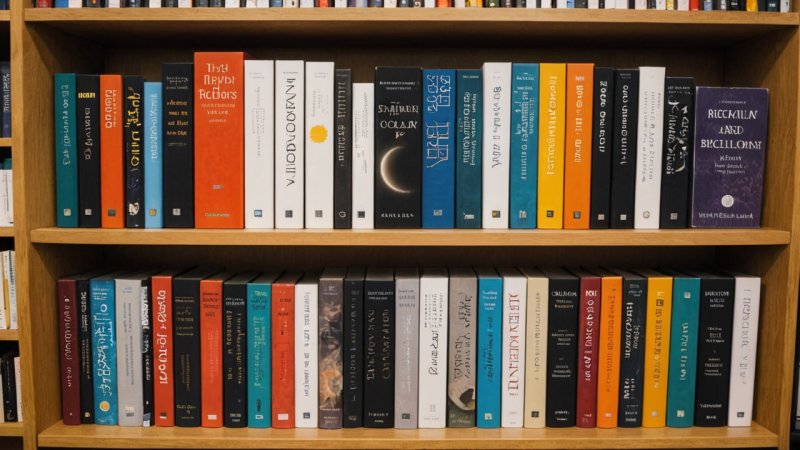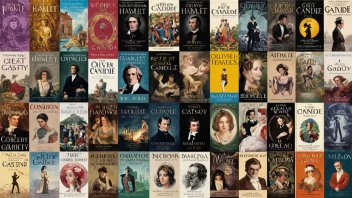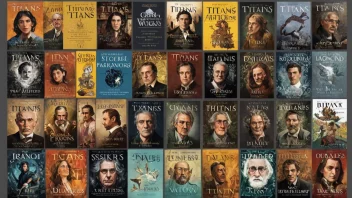In the vast world of literature, two prominent categories often vie for readers' attention: bestsellers and literary fiction. While both can offer profound insights and enjoyable narratives, they cater to different audiences and serve distinct purposes in the literary landscape. This article delves into the characteristics, pros, and cons of each category, helping readers understand their preferences and guiding them toward their next read.
Understanding Bestsellers
Bestsellers typically refer to books that have achieved significant sales figures, often topping charts like The New York Times Best Sellers list. These are often marketed heavily and are designed to appeal to a wide audience.
Characteristics of Bestsellers
- Wide Appeal: Bestsellers tend to have engaging plots and accessible writing styles, making them easy for a broad range of readers to enjoy.
- Marketing Focus: These books often benefit from strong marketing campaigns, driving their visibility and sales.
- Trend-Driven: Bestsellers frequently align with current cultural trends, tapping into public interests and societal conversations.
Pros of Bestsellers
- Entertaining Reads: Many bestsellers provide entertaining stories that can be read quickly, making them ideal for casual readers.
- Book Club Favorites: Their popularity often makes them common choices for book clubs, generating discussion among readers.
- Accessibility: The straightforward narratives in bestsellers can be welcoming to those new to reading or looking for lighter material.
Cons of Bestsellers
- Formulaic Writing: Some critics argue that bestsellers often rely on predictable plots and clichés, which can detract from the originality of the literature.
- Short-lived Trends: Many bestsellers may fade quickly from public consciousness, leading to a lack of lasting impact.
- Commercial Focus: The emphasis on sales can overshadow the artistic merit of a book.
The Allure of Literary Fiction
Conversely, literary fiction is often characterized by its focus on character development, thematic depth, and stylistic innovation. These works seek to explore the human condition and provoke thought, often appealing to readers who appreciate complexity and nuance.
Characteristics of Literary Fiction
- Character-Driven Narratives: Literary fiction often emphasizes in-depth character exploration and development, delving into their inner lives.
- Thematic Complexity: These works frequently tackle significant themes, such as identity, morality, and society.
- Innovative Language: The prose in literary fiction can be more experimental, employing rich imagery and unique narrative structures.
Pros of Literary Fiction
- Profound Insights: Literary fiction can offer deep psychological and philosophical insights, enriching the reader's understanding of life and humanity.
- Lasting Impact: The themes explored in literary fiction often resonate long after the last page is turned, inviting reflection and discussion.
- Artistic Value: Many literary authors are celebrated for their craftsmanship and ability to push the boundaries of language and form.
Cons of Literary Fiction
- Accessibility Issues: The complexity of some literary works may deter casual readers or those looking for straightforward narratives.
- Slower Pace: Literary fiction often unfolds at a slower pace, which may not appeal to readers seeking quick entertainment.
- Niche Audience: The focus on thematic depth can mean that literary fiction appeals to a smaller, more specialized audience.
Comparative Analysis
When comparing bestsellers and literary fiction, several factors come into play that can influence a reader's choice.
Reader Engagement
Bestsellers typically engage readers with fast-paced plots and relatable characters, allowing for a more casual reading experience. In contrast, literary fiction requires a deeper investment, inviting readers to ponder complex themes and character motivations.
Impact on Literary Culture
Bestsellers often reflect current cultural trends and societal issues, potentially shaping public discourse. Literary fiction, however, tends to challenge readers to think critically about these issues, often offering a more nuanced perspective.
Longevity and Legacy
While many bestsellers fade from popularity, some achieve lasting cultural significance, becoming classics in their own right. Literary fiction, on the other hand, is often revered for its artistic merit and remains relevant over time, influencing future generations of writers.
Conclusion
In conclusion, both bestsellers and literary fiction hold unique places in the literary world, each offering distinct experiences for readers. Bestsellers provide entertainment and accessibility, making them excellent choices for casual readers or those seeking light-hearted narratives. Conversely, literary fiction invites readers to engage with profound themes and complex characters, often leaving a lasting impact. Ultimately, the choice between the two depends on individual preferences, reading goals, and the desire for either escapism or intellectual engagement. Embracing both categories can enrich one's reading journey and foster a deeper appreciation for the vast tapestry of literature.






